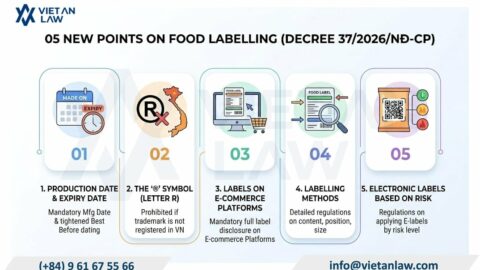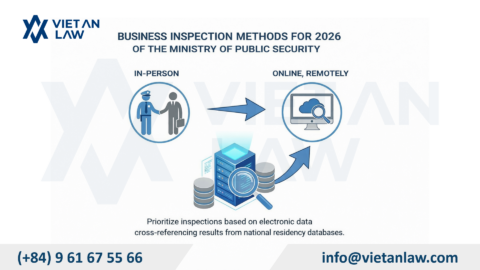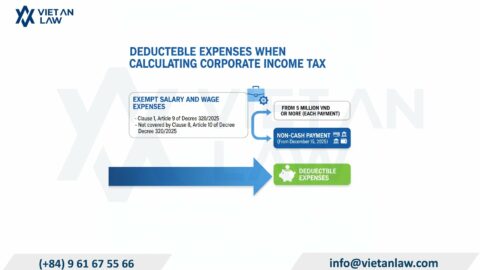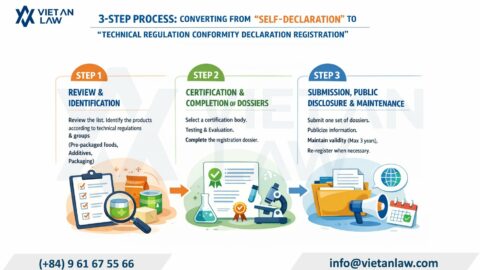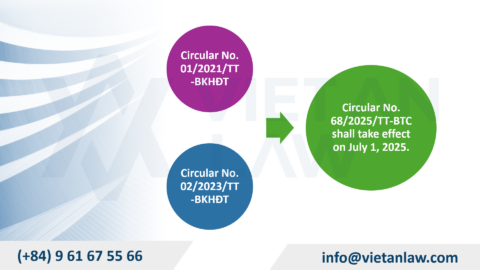Resolution No. 198/2025/QH15, regulating a number of special mechanisms and policies aimed at developing the private economy, was approved by the National Assembly of the Socialist Republic of Vietnam at its 15th session, 9th session on May 17, 2025. Resolution 198/2025/QH15 was developed and promulgated to concretize and implement Resolution No. 68-NQ/TW of the Politburo on private economic development.
Table of contents
The Resolution also stipulates the exemption of charges and fees for organizations, individuals and enterprises for papers that must be re-issued or re-issued when rearranging and reorganizing the state apparatus in accordance with law. This is a practical measure, avoiding businesses from having to bear additional costs arising from the state’s administrative reforms.
| Tax/Fee Type | Specific Offers | Beneficiaries | Deadline/Key Conditions | Effective Date |
| CIT | Exemption for 02 years, 50% discount for the next 4 years | Innovative start-up enterprises (KNST), KNST investment fund management companies, intermediary organizations to support KNST | Income from KNST activities | May 17 2025 |
| CIT | Exemption of 03 years | Newly established SMEs | From the date of issuance of the first enterprise registration certificate | May 17 2025 |
| CIT | Tax exemption | Income from the transfer of shares, capital contributed to KNST enterprises | Applicable to investors and individuals contributing capital | May 17 2025 |
| CIT | Included in deductible expenses | Training costs of large enterprises for SMEs participating in the chain | May 17 2025 | |
| PIT | Exemption for 02 years, 50% discount for the next 4 years | Income from salaries and works of experts and scientists working for agricultural enterprises, R&D centers, innovation centers | May 17 2025 | |
| PIT | Tax exemption | Income from the transfer of shares, capital contributed to KNST enterprises | Applicable to investors and individuals contributing capital | May 17 2025 |
| License fee | Abolish | Enterprises, business households, business individuals | January 01 2026 | |
| Flat tax | Annulment (switch to tax administration law) | Business households and individuals | January 01 2026 | |
| Fees and charges for issuance of papers | Free | Organizations, individuals and enterprises must issue and replace papers due to the arrangement of the state apparatus | When arranging and reorganizing the state apparatus | January 01 2026 |
Summary table of tax incentives and fees according to Resolution 198/2025/QH15
Access to land and production premises has always been one of the major issues for businesses, especially SMEs and new businesses. Resolution 198/2025/QH15 proposes solutions to remove this.
The Resolution allows localities to use their budgets to support investment in the construction of technical infrastructure of industrial parks and industrial clusters, in order to create favorable conditions for Vietnamese SMEs, high-tech enterprises, and innovative start-ups. This decentralization can help localities be more proactive in developing infrastructure in accordance with their needs and characteristics. Another regulation is the requirement to reserve at least 20 hectares of each industrial park or 5% of the total industrial land area of the industrial park to lease or sublease to high-tech enterprises in the private economic sector, SMEs, and creative start-ups. This mechanism ensures a certain part of the land fund for priority subjects, avoiding the situation of being occupied by larger enterprises.
In order to reduce initial costs, these priority enterprises will be entitled to a minimum 30% reduction in land sublease in the first 5 years from the date of signing the land lease contract with the investor in the infrastructure of industrial parks, industrial clusters, and technology incubators. This support will be reimbursed by the State to the investor. This is a form of direct subsidies, which significantly reduces fixed costs for businesses in the investment and development stages.
Resolution 198/2025/QH15 sets a specific deadline of December 31, 2026 at the latest, to complete the review, amendment, supplementation and completion of the law on land, planning and investment. The parallel existence of specific measures to support land access in the Resolution (such as rent reduction, priority land fund) and the goal of comprehensive reform of major laws on land, planning and investment shows a combination of situational solutions and long-term strategies. Immediate incentives are important to alleviate difficulties for businesses, but their effectiveness and long-term sustainability depend greatly on the success of future amendments to the Land Law, Planning Law, and Investment Law.
Resolution 198/2025/QH15 sets out many regulations to reform this sector in the direction of reducing the burden and enhancing equity.
The limitation of inspection activities in Article 4 of the Resolution, the inspection of enterprises, business households and business individuals must not exceed 01 time/year, except for cases where there are obvious signs of law violation. This directly solves the situation of overlapping inspections and examinations, often causing disruption and cost to businesses.
The Resolution also prohibits both inspection and examination of the same management content in the same year for the same subject, in order to avoid unnecessary duplication.
The Resolution requires priority to carry out inspections, remote examinations, digital transformation applications and minimize physical inspections for units that comply well with the provisions of the law. At the same time, there is a regulation on exemption from physical inspection at enterprises, business households and individuals that comply well with regulations.
The Resolution sets out important principles in handling violations in Article 5, in order to ensure fairness and minimize risks to business activities:
The Resolution requires strict handling of acts of abuse of inspection to interfere and cause difficulties for business households and enterprises. At the same time, emphasizing the strong shift from pre-inspection to post-inspection, reducing interference in regular business operations.
Another point is that the regulations strictly prohibit media agencies, press, organizations and individuals from engaging in corrupt and negative acts, spreading false information affecting businesses, entrepreneurs, business households, and business individuals. This is to protect the reputation of businesses against false or ill-intentioned information, recognizing the role of information in the modern business environment.
In addition to reforming supervision, Resolution 198/2025/QH15 also focuses on streamlining legal regulations and administrative procedures, which are inherent barriers to the development of enterprises.
The Resolution allows the expansion of cases of application of simplified bankruptcy procedures in Article 6 for enterprises. The National Assembly requires a minimum of 30% shortening of the processing time compared to the usual process to reduce the burden of procedures and costs. Shortening time and costs is not only about making the process more efficient, but also a catalyst for the dynamism of the economy, allowing capital and labor to be more efficiently reallocated from failed projects to new, more promising and promising projects. thereby promoting innovation.
The Government is tasked to, no later than December 31, 2025, complete the review and elimination of unnecessary business conditions, overlapping and inappropriate regulations, hindering the development of private enterprises. Excessive or irrational business conditions are a major source of complaints and barriers to market entry and growth. The Resolution also sets specific goals: reduce the time to handle administrative procedures by at least 30%, reduce the cost of legal compliance by at least 30%, and reduce the number of business conditions by at least 30%, and continue to cut sharply in the following years.
The Resolution requires the continued review, amendment, supplementation and completion of other laws related to business investment in order to fully institutionalize the Politburo’s Resolution No. 68-NQ/TW on private economic development.
In order for the private sector to develop sustainably and have high competitiveness, Resolution 198/2025/QH15 provides support policies for finance, technology and human resource development.
Enterprises in the private economic sector, business households and business individuals are supported by the State with an interest rate of 2%/year when borrowing capital to implement green and circular projects and apply the environmental, social and governance (ESG) standard framework. This financial incentive directly promotes sustainable business practices and links the development of the private sector to national and global sustainable development goals.
Aim to implement Resolution 68-NQ/TW, Resolution 198/2025/QH15 represents a comprehensive and ambitious effort by the State of Vietnam to create a breakthrough in private economic development. With a series of special mechanisms and policies ranging from fiscal reform, streamlining administrative procedures, to increasing access to resources and capacity development, this Resolution promises to create a significantly more favorable business environment for private enterprises. business households and business individuals.
However, its ultimate impact depends on the serious, transparent and consistent implementation at all levels of government under the guidance of plans such as Resolution 139/NQ-CP. In addition, the active participation of the private sector itself in adapting and taking advantage of new opportunities also contributes very important.
